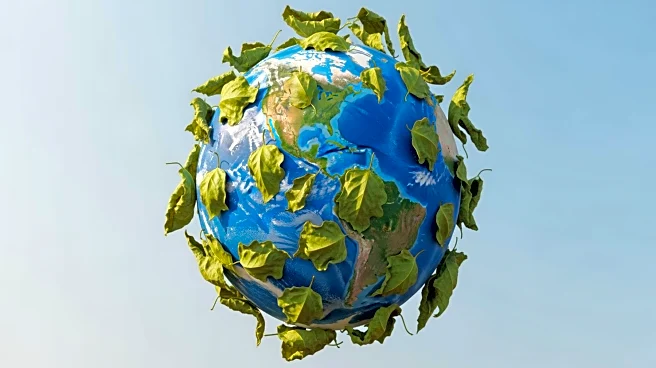What's Happening?
At the COP30 climate summit in Belém, Brazil, President Trump faced criticism from world leaders for his stance on climate change. Despite not attending the summit, his views were a focal point, with leaders from Colombia
and Chile labeling him a liar for rejecting climate science. UK Prime Minister Sir Keir Starmer noted the diminishing global consensus on climate action, emphasizing the need for renewed efforts to protect forests. The summit aims to negotiate new climate deals, focusing on forest protection funding. Notably, leaders from major nations like India, Russia, the US, and China were absent.
Why It's Important?
The criticism of President Trump highlights the growing international frustration with the US's climate policies, potentially affecting global cooperation on environmental issues. The absence of major world leaders at COP30 underscores the challenges in achieving unified climate action. The summit's focus on forest protection is crucial, as these ecosystems play a significant role in carbon storage and biodiversity. The UK's decision to opt out of a major rainforest fund further complicates efforts to combat deforestation, a key component in addressing climate change.
What's Next?
Countries will spend the next two weeks negotiating further climate action, with a focus on raising finance for those affected by climate impacts. The summit's outcomes could influence future international climate policies and funding commitments. The criticism of President Trump may lead to increased pressure on the US to alter its stance on climate change, potentially impacting domestic and international environmental policies.
Beyond the Headlines
The summit's discussions may lead to long-term shifts in global climate policy, emphasizing the importance of forest conservation. The criticism of President Trump reflects broader tensions between developed and developing nations regarding climate responsibilities and actions. The absence of major leaders could signal a shift in global priorities, affecting future climate negotiations.










